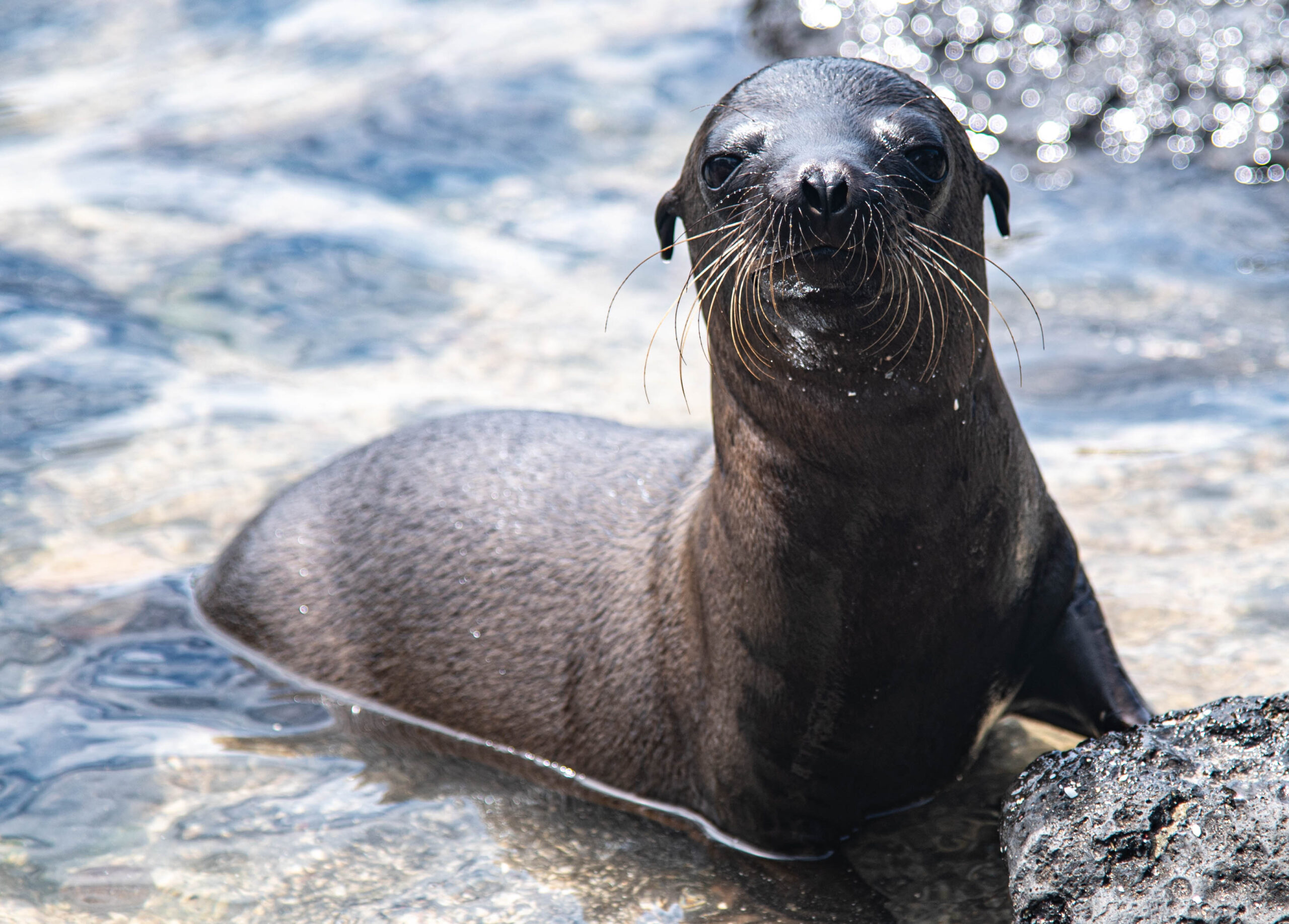The main objective of this work, carried out in coordination with the Galapagos National Park Directorate (GNPD), was to report for the first time the presence of Mycoplasma spp. in Galapagos sea lions. Mycoplasma spp is a bacterium that has been reported as a guest in the respiratory tract of other Otharids (family of pinniped mammals) and that has also been reported as a pollutant and exacerbator of respiratory infections.
This research began in 2018 in Santa Cruz during the Galapagos sea lion breeding season. In Galapagos this species lives very closely with domestic animals such as dogs and cats.
Sarzosa, a wildlife researcher and veterinarian, observed that several sea lions had a runny nose, respiratory distress and were in poor body condition, which raised the need to investigate a little more to determine the causes of these symptoms.

In order to investigate further, personnel from both the GSC and the GNPD captured 18 sea lions, all of which had blood taken for serology and nasal discharge for culture and PCR testing.
Later, Sarzosa and the team of researchers analyzed the samples in search of 15 respiratory pathogens that generally affect dogs, cats and also sea lions.
Mycoplasma spp. was the only pathogen identified.
According to Sarzosa, “identifying Mycoplasma spp. in the Galapagos sea lions allows us to increase the baseline of pathogens present in this species.” This finding will be of great importance for future research, to understand the role of this bacterium in the Galapagos sea lions.
This work highlights the need to promote and deepen studies to determine different factors that may affect the life of the species that inhabit the Galapagos Islands.
“As a wildlife veterinarian, it is always very flattering to be able to contribute to the health care of Galapagos animals, since we are helping the conservation of unique species in the world,” said Sarzosa.






